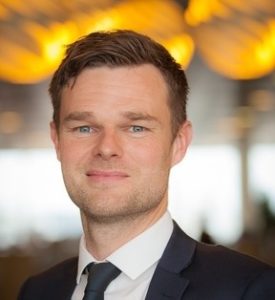Annual Summit – a day of ambition, confidence and vision

by Strategic Director, Andrew Summers
It’s been a fortnight since our Annual Summit and I’ve been reflecting on what was an energetic and insightful day.
Decarbonisation
Several themes emerged from the speakers and delegates. The first was the commitment, across the board, to decarbonising the region’s transport. In her key-note speech, Baroness Vere, Minister for Roads, Buses and Places at the Department for Transport set the tone by trailing some of the forthcoming transport Decarbonisation Strategy. This plan should give our region more clarity around the transition to alternative fuels alongside other big challenges such as supporting the freight industry to shift to net zero. She also expressed her support for our work, urging us to push on with developing our regional Transport Strategy to underpin our single voice for our priorities.
The net zero theme was picked up in the panel discussions chaired by Dr Dan Poulter MP. How to plan and deliver the transition to electric vehicles was discussed by both Aaron Berry from the Office of Zero Emission Vehicles, and Jerry Stokes from Gridserve, owners of the first all-electric charging forecourt in Braintree. But we need to go further than just changing fuel. Achieving net zero also requires increased investment to support a substantial shift to both passenger transport and walking and cycling. Dame Sarah Storey, Active Travel Commissioner for Sheffield City Region and John Birtwistle of FirstGroup plc both highlighted this in their presentations.
Rural and coastal challenges
A second theme focused on the challenges of delivering in a largely rural and car-dependent region. This came up in questions and comments in the panel discussions and in the afternoon workshops. Some delegates felt the challenges of rural communities are very different to those in major metropolitan areas, and so not addressed as well in national policy development. With 15% of the UK arable farmland, 1,000 offshore wind turbines, 13 ports including 2 newly created Freeports and a national contribution to GDP of £73bn pre-Covid19, the value and potential of our rural and coastal communities is not to be underestimated. Articulating this value with a loud, clear, single voice to increase investment was a core message coming from both Prof Cheryl Davenport of EELGA, Tim Morris of the UK Major Ports Group.
Value of place
The third area was around the value of places and how joint transport and land-use planning can create greener, healthier and more economically vibrant places. People’s connection to their local places has increased in importance during the Covid19 pandemic. Something likely to continue with long-term working from home. Looking at the region as a whole and designing communities to reduce the need to travel, close to existing transport networks was a central point made by Victoria Hills of the RTPI, Adam Brown from Cambridge Econometrics and Fionnuala Lennon of Homes England.
Well planned new development can also add to the funding pot for road and rail improvements and maximise the value of existing infrastructure, a point made by both Adam Simmons from Highways England and James Bradley of Network Rail. They both also articulated how working with bodies like Transport East will make the case for investment in the region’s major networks easier and accelerate delivery of projects.
I was deeply impressed by people’s enthusiasm to tackle the big challenges ahead and the insight from experts across the region. I’m grateful to the 150 partners who participated in the event. We’ve got a lot to consider as we draw our work on the draft regional Transport Strategy together. But the conversations at the Summit gave me confidence we are heading in the right direction.
